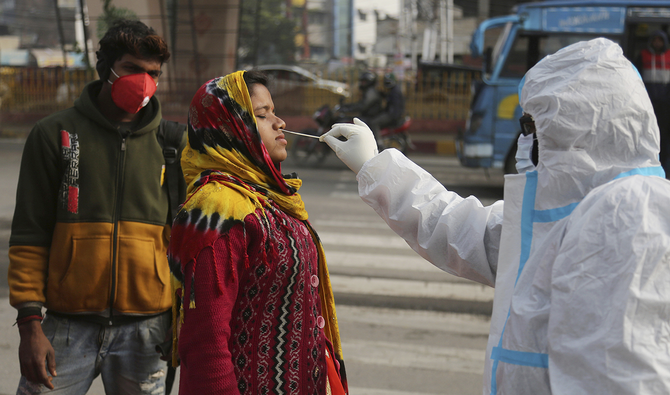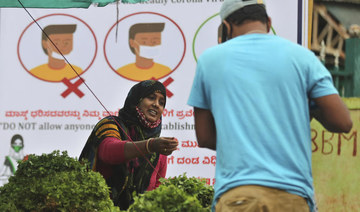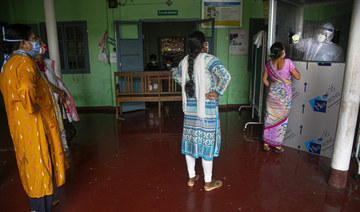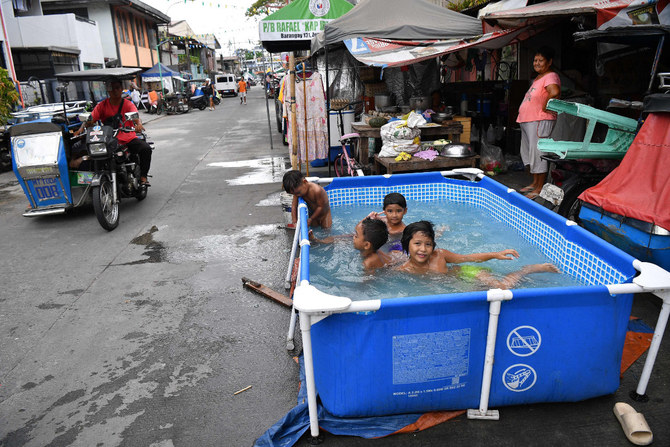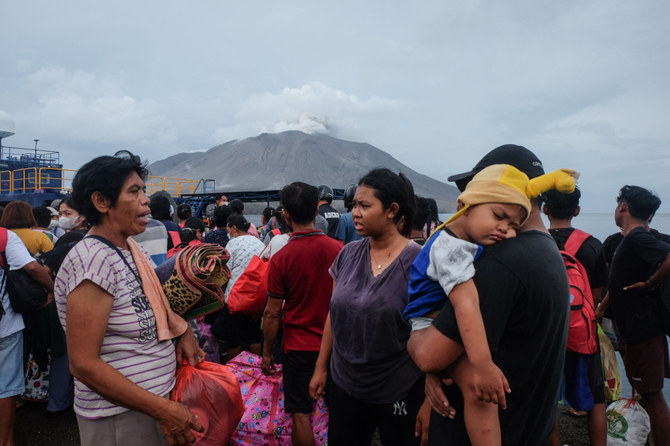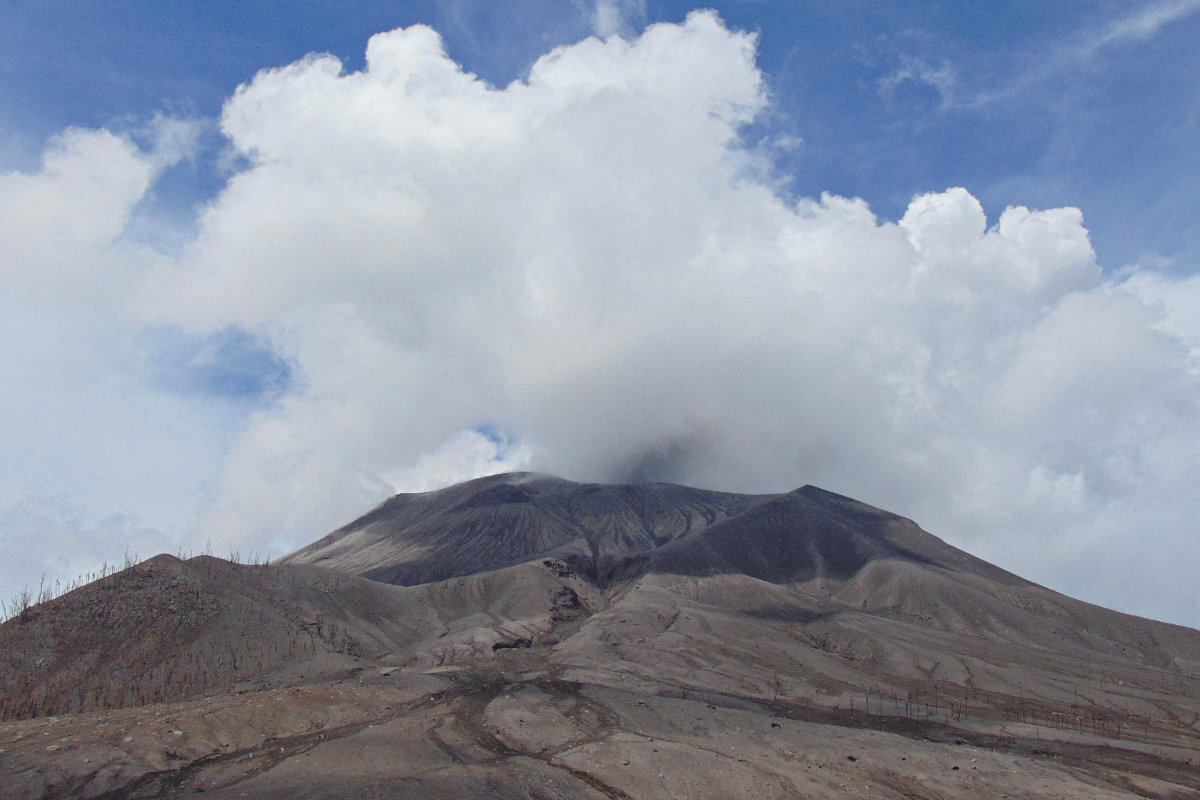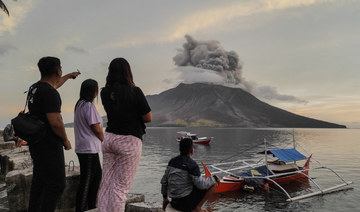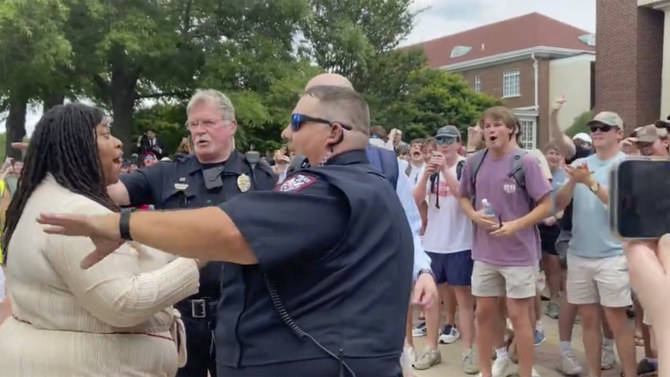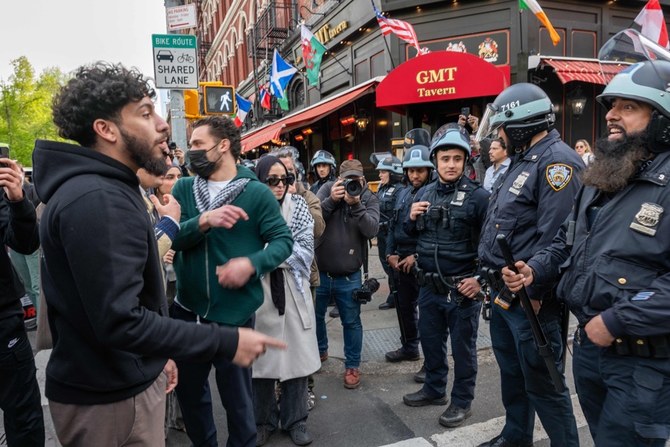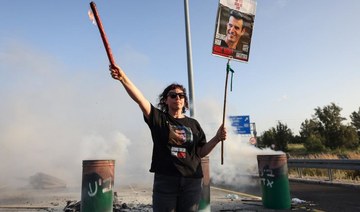NEW DELHI: India began a two-day dry run for coronavirus vaccination in four states across the country on Monday in preparation for a full roll-out in the near future.
The trial covers the northeastern state of Assam, the northern state of Punjab, the southern state of Andhra Pradesh and the western state of Gujarat. Two districts from each of these states will be involved.
“Today we will be having the dry run for the COVID-19 vaccine in both urban and rural areas,” civil surgeon in the Punjab-based Ludhiana district, Dr. Rajesh Kumar Bagga, told Arab News.
Seven booths have been set up in the district and each booth will vaccinate 25 people.
“It would be just a dummy vaccine. Once a person is given a vaccine, he will be given some key messages — such as what to observe, where to inform. We will give the person a rapid response number so that he can talk to them in case of any side-effects,” Bagga said.
The exercise on Monday and Tuesday will include monitoring, and the feedback received will be reviewed from block level to the main center in Delhi.
The government has prepared a detailed checklist for the states to carry out the exercise.
India has had more than 10 million coronavirus cases to date, with more than 147,000 people dying from the disease.
The efficacy of the digital platform Co-Win will be tested during the dry run. The application identifies beneficiaries and assesses the prerequisites for introduction of the vaccine.
“The Central government is gearing up for the roll-out of the COVID-19 vaccine across the country,” the Ministry of Health said in a statement on Monday. “As the vaccine administrators will play an important role in the immunization process, training of trainers and those who shall administer the vaccine has been taken up across various states,” the statement said.
Health experts, however, have questioned the need for a dry run at a time when there is little information about vaccines.
FASTFACT
India has had more than 10 million coronavirus cases to date, with more than 147,000 people dying from the disease.
“Dry runs are fine but are of limited utility when we do not have information about the vaccine(s) that are coming, their data and the decision-making processes,” said New Delhi-based Malini Aisola, a co-convenor of the All India Drug Action Network (AIDAN), a civil society group advocating rational drug policy.
“The chief modalities that need to be in place in advance of vaccine roll-out are not in place. For instance, what is the exact adverse-event monitoring mechanism and will the data about adverse events be shared transparently with the public? Will there be a mechanism of compensating individuals who suffer unexpected adverse events?” Aisola said.
There are six vaccine candidates in different clinical trial stages in India, three of which are at the pre-clinical stage.
Earlier this month the southern Indian city of Hyderabad’s Bharat Biotech, the Pune-based Serum Institute of India (SII) and the US-based Pfizer applied for emergency-use authorization of their COVID-19 vaccines.
Aisola questions the lack of transparency in the data of those companies that have applied for emergency use.
“Unfortunately the applications of the Serum Institute and Bharat Biotech for emergency approval were premature and lacking the data that is critical for the regulator and expert body to consider,” the health activist said.
She wonders why Bharat Biotech has applied for emergency use of the vaccine when trials are still ongoing and when the Serum Institute has to yet to receive approval for its AstraZeneca/Oxford vaccine from the UK’s Medicines and Healthcare products Regulatory Agency (MHRA).
SII, the world’s largest vaccine manufacturer, has collaborated with the University of Oxford and AstraZeneca to manufacture the vaccine in India under the name of “Covishield”.
According to media reports, Covishield may become the first vaccine to be rolled out in India if the Oxford vaccine gets permission from the UK government next week.
Health Minister Dr. Harsh Vardhan earlier this month said that India will likely authorize its first COVID-19 vaccine in January, adding that “safety and effectiveness of the vaccine is the first priority.”
Some health experts also favor a “vaccine roll-out in a calibrated manner.”
Virologist Shahid Jameel, of Sonipat-based Ashoka University, asked: “What use are vaccines developed in record time if they can’t be used to control the pandemic?”
Jameel said that it was up to the people to decide whether they wanted a vaccine or not. “Those convinced will take it. Others will go around pontificating without wearing masks because of COVID fatigue and keep spreading the virus,” he told Arab News.
Aisola, meanwhile, continues to push for transparency in data before the vaccine program is introduced. “The public is also entitled to have information regarding the safety and efficacy of the vaccines prior to their roll-out,” she said.
“India would play a very important role in terms of global supply of vaccines and meeting the needs of particularly other developing countries,” she said. “It is quite important in this context that there is adequate transparency in the regulatory approval process and stringent scrutiny of the data.”



